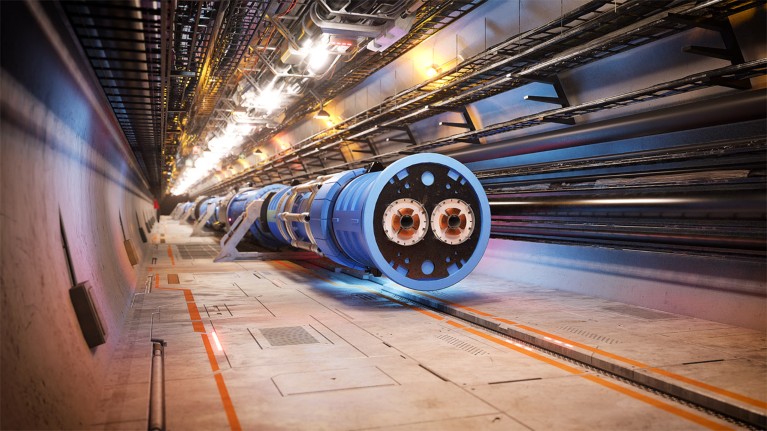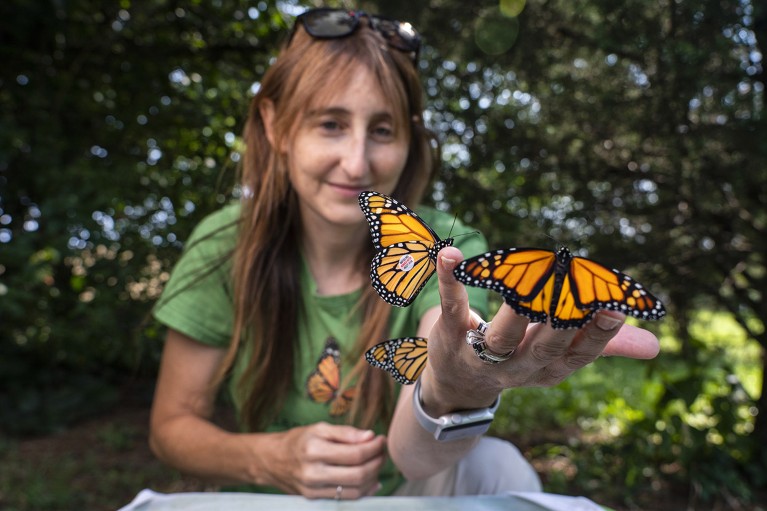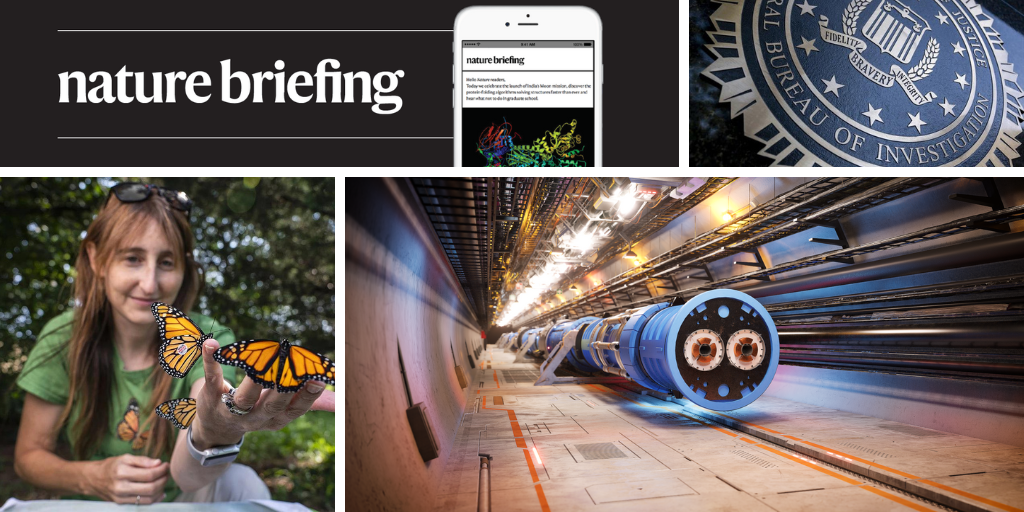Hello Nature readers, would you like to get this Briefing in your inbox free every day? Sign up here.

The Future Circular Collider would occupy a 91-kilometre tunnel (artist’s impression).Credit: PIXELRISE/CERN
Plans for a US$17 billion European particle accelerator are facing a serious challenge after the German government said that the project was unaffordable. The Future Circular Collider (FCC) would be more than three times larger than the Large Hadron Collider and would focus on mass-producing the mysterious Higgs boson. The financing plan for the FCC “is extremely vague and requires a high level of commitment from external partners, which is neither assured nor even in prospect at the present time,” said a spokesperson for the country’s Federal Ministry of Education and Research. The questions and concerns raised “are not new to us and they are all being addressed in the FCC feasibility study,” says CERN’s research director Joachim Mnich.
Nature | 6 min read
In a rare public meeting, members of the US Federal Bureau of Investigation (FBI) assured researchers of Asian descent that their concerns over discrimination are being heard. Under the China Initiative, a now-defunct anti-espionage programme, the FBI arrested several scientists of Chinese descent. And scrutiny seems to continue: China says that at least 70 Chinese students have been deported since July 2021. Some participants lauded the FBI meeting as an important step in building trust; others say that much more work remains to be done.
Nature | 6 min read
Researchers have discovered a genetic driver for inflammatory bowel disease (IBD), ankylosing spondylitis and other immune disorders: a section of DNA in a ‘gene desert’ — a stretch of the genome that does not code for proteins. This stretch of DNA appears to enhance the action of a gene called ETS2, ultimately boosting the level of inflammation-causing chemicals released by macrophages, a type of white blood cell implicated in IBD. “This is undoubtedly one of the central pathways that goes wrong for people to get inflammatory bowel disease,” says gastroenterologist and study co-author James Lee. Drugs called MEK inhibitors, which are already approved for other conditions, reduced inflammation in tissue samples from people with IBD.
Vaccine-developer Moderna says that its combined jab against COVID-19 and influenza has produced positive results in a phase III trial. The vaccine uses the same pioneering mRNA technology as the company’s breakthrough COVID-19 vaccine. In the trial in adults 50 years and older, the one-and-done shot elicited immune responses on par or better than those triggered by separate vaccines currently in use, reported Moderna in a press release.
Reference: Moderna press release
Features & opinion
In the latest Nature Careers advice column, a developmental biologist writes to say that they were blindsided when, after eight years building their laboratory, they were denied tenure. Three professors who have experienced tenure denial offer some advice.
Nature | 6 min read
Do you have a work dilemma you’d like some help with? E-mail naturecareerseditor@nature.com
In her new book Systemic, science journalist (and former Nature reporter) Layal Liverpool presents harrowing differences in health outcomes for people of racially and ethnically marginalized groups, amply supported by evidence from a wide range of global sources. For example, a long-standing measure of kidney function was calculated based on the racist assumption that waste-production levels in the kidney differ by race. “Liverpool makes available a plethora of resources and advocacy groups that should help everyone to get involved in anti-racism efforts,” notes health-services researcher and reviewer Sirry Alang.
Nature | 8 min read
Pick a card, any card — or in this case, a worm. Researchers are using magic tricks to reveal how animals such as Eurasian jays (Garrulus glandarius) think. For example, a sleight-of-hand called the ‘fast pass’, in which an object is tossed so quickly between two fists that the observer can’t see it, revealed that the trick also works on jays — giving new insight into their visual system. “Magic effects can reveal blind spots in seeing and roadblocks in thinking,” says cognitive scientist Nicky Clayton.
Reference: Annual Review of Psychology review
Where I work

Robyn Elman is an entrepreneur and citizen scientist in Queens, New York.Credit: Karine Aigner/naturepl.com
Entrepreneur and community scientist Robyn Elman has raised thousands of monarch butterflies (Danaus plexippus) from eggs that would otherwise be destroyed by lawnmowers cutting down roadside weeds. “From July through to September, that still takes me around six hours a day, seven days a week,” she explains. Elman tags some of the butterflies with stickers to monitor them on their migration to Mexico. She’s also working with New York’s Department of Transportation, which is responsible for roadside mowing, to better protect the animals’ habitats. (Nature | 3 min read)
Last week, rockhopper penguin Leif Penguinson was living up to the name by rock-hopping in Germany’s Bavarian Forest National Park. Did you find the penguin? When you’re ready, here’s the answer.
Thanks for reading,
Flora Graham, senior editor, Nature Briefing
With contributions by Katrina Krämer
Want more? Sign up to our other free Nature Briefing newsletters:
• Nature Briefing: Microbiology — the most abundant living entities on our planet — microorganisms — and the role they play in health, the environment and food systems.
• Nature Briefing: Anthropocene — climate change, biodiversity, sustainability and geoengineering
• Nature Briefing: AI & Robotics — 100% written by humans, of course
• Nature Briefing: Cancer — a weekly newsletter written with cancer researchers in mind
• Nature Briefing: Translational Research — covers biotechnology, drug discovery and pharma
